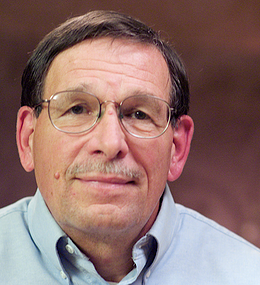A would-be owner from out of town fighting for a team. A league angling to keep the team in place. A fan base caught in the middle.
Sound familiar? It should – because it’s the story of the Seattle Pilots.
Following the team’s one and only season in Seattle – 1969 – the Pilots were purchased by future MLB Commissioner Bud Selig, who moved the team to Milwaukee and quickly renamed them the Brewers. Though there are differences, according to historian and author Bill Mullins, who recently published the book Becoming Big League: Seattle, the Pilots, and Stadium Politics, there are “a number of parallels” between the story of the Pilots and the current saga playing out between Sacramento and Seattle.
“The parallel right now, is that Chris Hansen is playing the role of Bud Selig in 1969, and just trying to obtain a team,” says Mullins, noting that the Pilots wasn’t the first team Selig attempted to buy following the Milwaukee Braves’ departure for Atlanta in 1965.
“What Selig did with the Pilots is just hold out a basket and let the fruit drop in it.”
That fruit, in this case, was Seattle’s baseball team. And, according to Mullins, it’s a story that offers hope for Seattle in its quest to bring NBA basketball back to town.
“If Hansen and the people of Seattle are patient enough, there’s probably another team [to be had],” says Mullins. “ Hansen appears to be one of the best owners in the league, if he ever gets a chance to be one.”
While there are similarities between what happened to the Pilots and the current situation pitting Seattle against Sacramento, there are also differences. Chiefly, Mullins says Sacramento’s political leadership – led by former player and current mayor Kevin Johnson – put up much more of a fight to keep the Kings in town than Seattle did with the Pilots.
“With the Pilots, there just wasn’t a strong enough effort to keep the team [in Seattle],” says Mullins. “There weren’t the ‘whales’ [that Sacremento has lined up] – not enough deep pockets. … Sacramento’s offer was quite a bit stronger than Seattle’s offer for the Pilots.”
As with Monday’s decision by the NBA relocation committee to recommend denying the Kings proposed move to Seattle – of which NBA Commissioner David Stern has indicated a desire to keep the team in the city that has supported them over the years played a key role – Mullins says, back in 1969, the powers that be in the American League also preferred keeping the Pilots in Seattle. In the end, however, Seattle’s high rollers and political heavyweights simply didn’t step up to the plate the way Sacramento’s did for the Kings.
“The American League in 1969 very much wanted the Pilots to stay in Seattle,” says Mullins. “Had there been a viable buyer [in Seattle], they would have stayed in Seattle at least one more year. … [Moving the team] made them look like fools for putting a team [in Seattle] in the first place.”
Likewise, Mullins says keeping an NBA team out of Seattle, at this point in history, makes the league look equally foolish. He’s willing to bet the league realizes this, and predicts the situation will eventually right itself – but perhaps not before Seattle, its arena deal, and Hansen’s money are used as a pawn to inspire a few other floundering NBA cities to up their local investments in the teams they risk losing.
“I think Seattle was used as leverage to a degree,” Mullins says of the Sacramento deal. “Sports business writers have pretty well concluded it’s to the advantage of a league to leave one or two good areas open [to use as leverage]…. It’s really easy to see it as a malicious part of the system, but it’s a commonality of the system as well. That’s just the way sports business works, and it’s not particularly pleasant.”
Eventually, however, Mullins believes there will come a team – either through expansion or struggling finance – that can’t pass up what Seattle has to offer.
“I really do think that if Seattle is patient it will have a team. Seattle’s too good of a market to miss out on,” says Mullins. “I think the NBA will be willing to trade a Milwaukee or a Charlotte for Seattle.”








